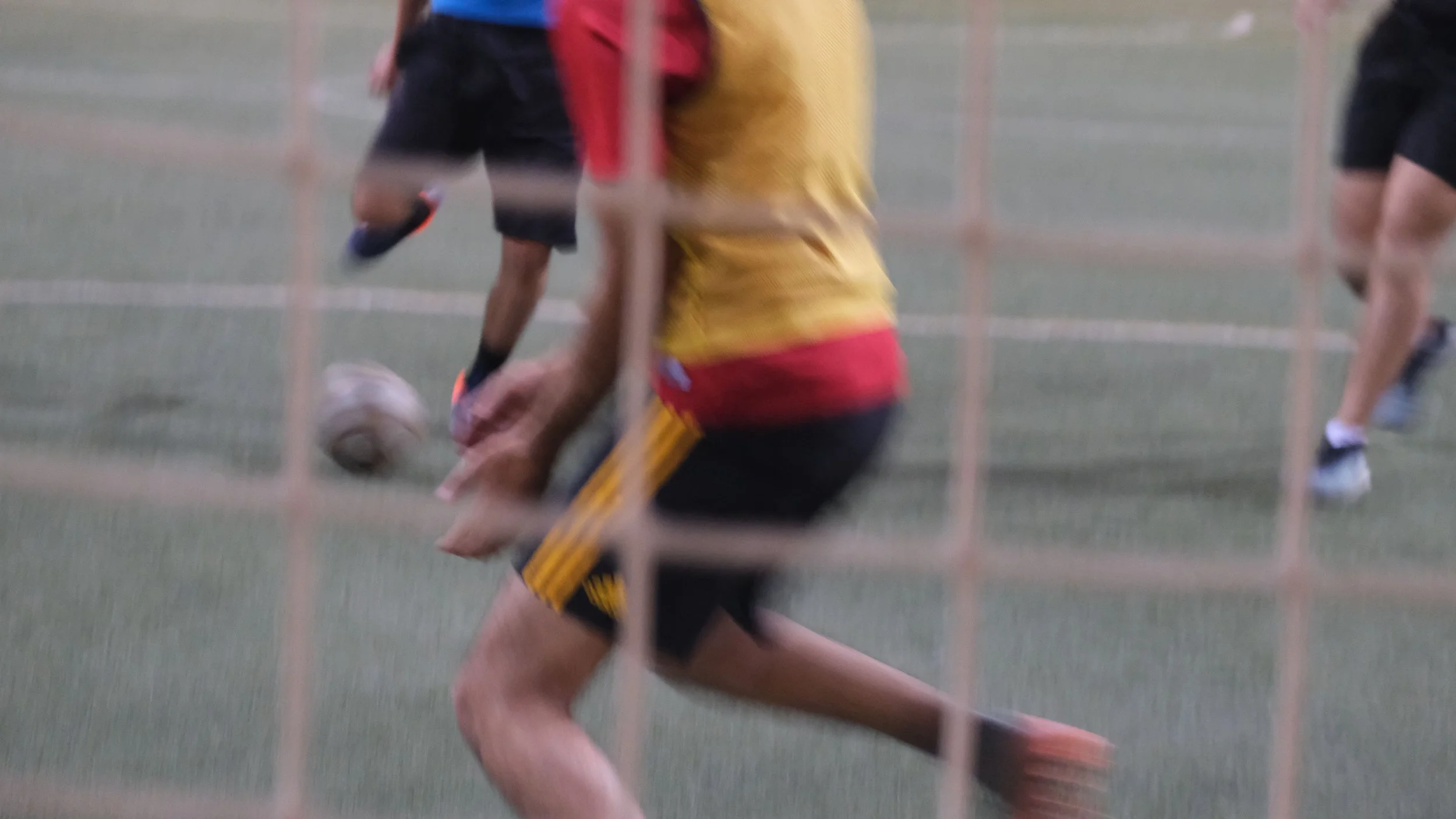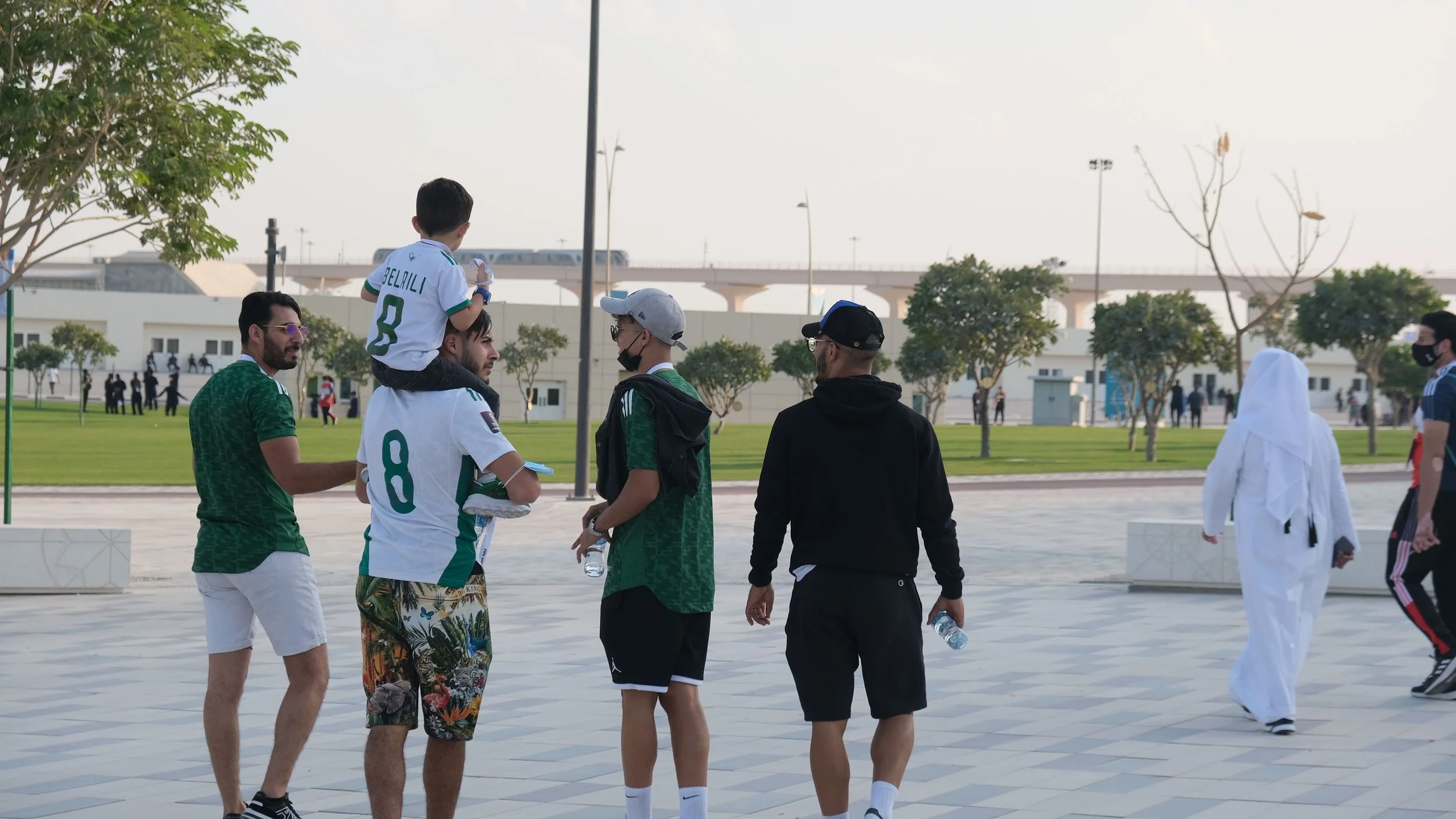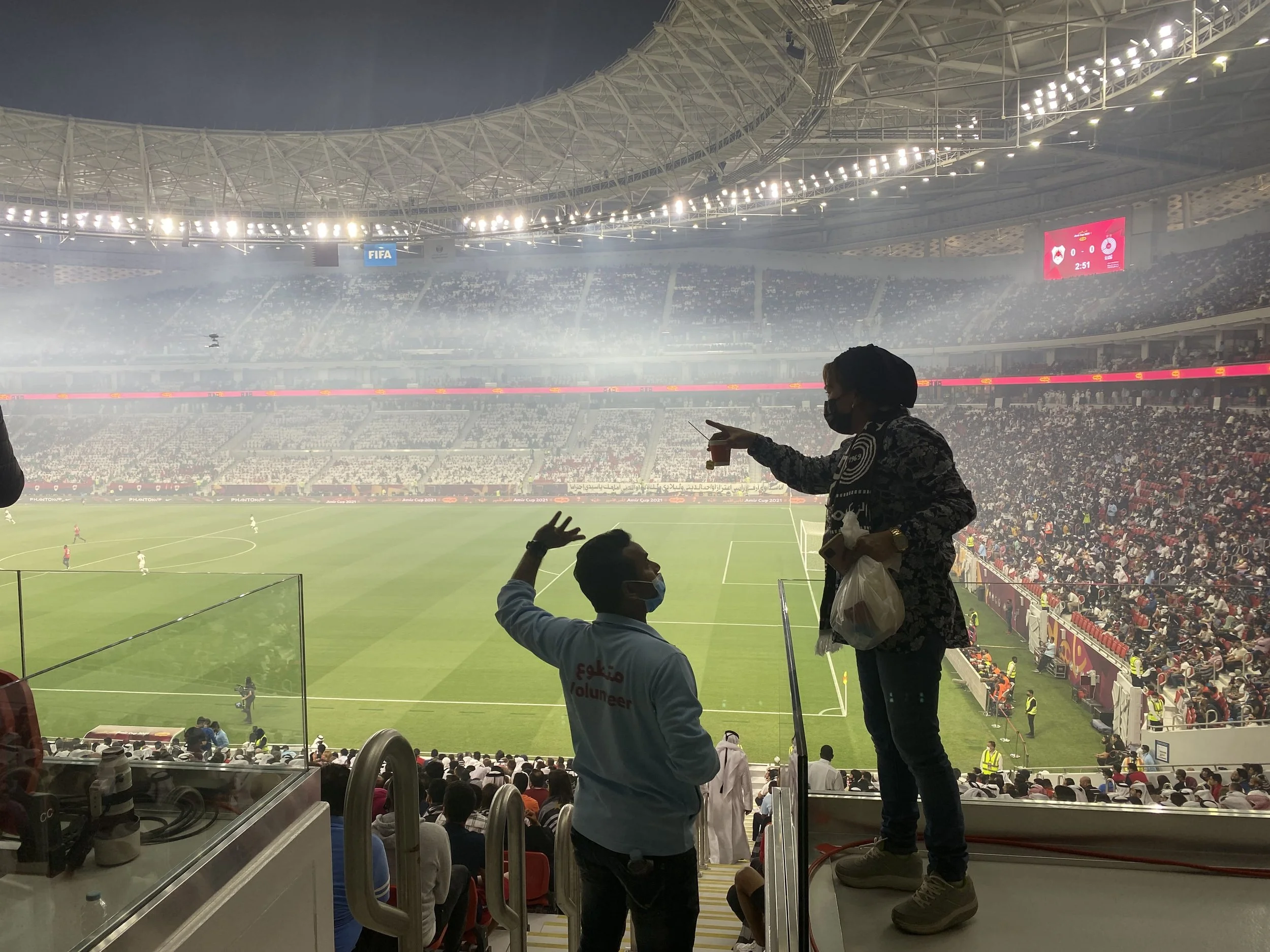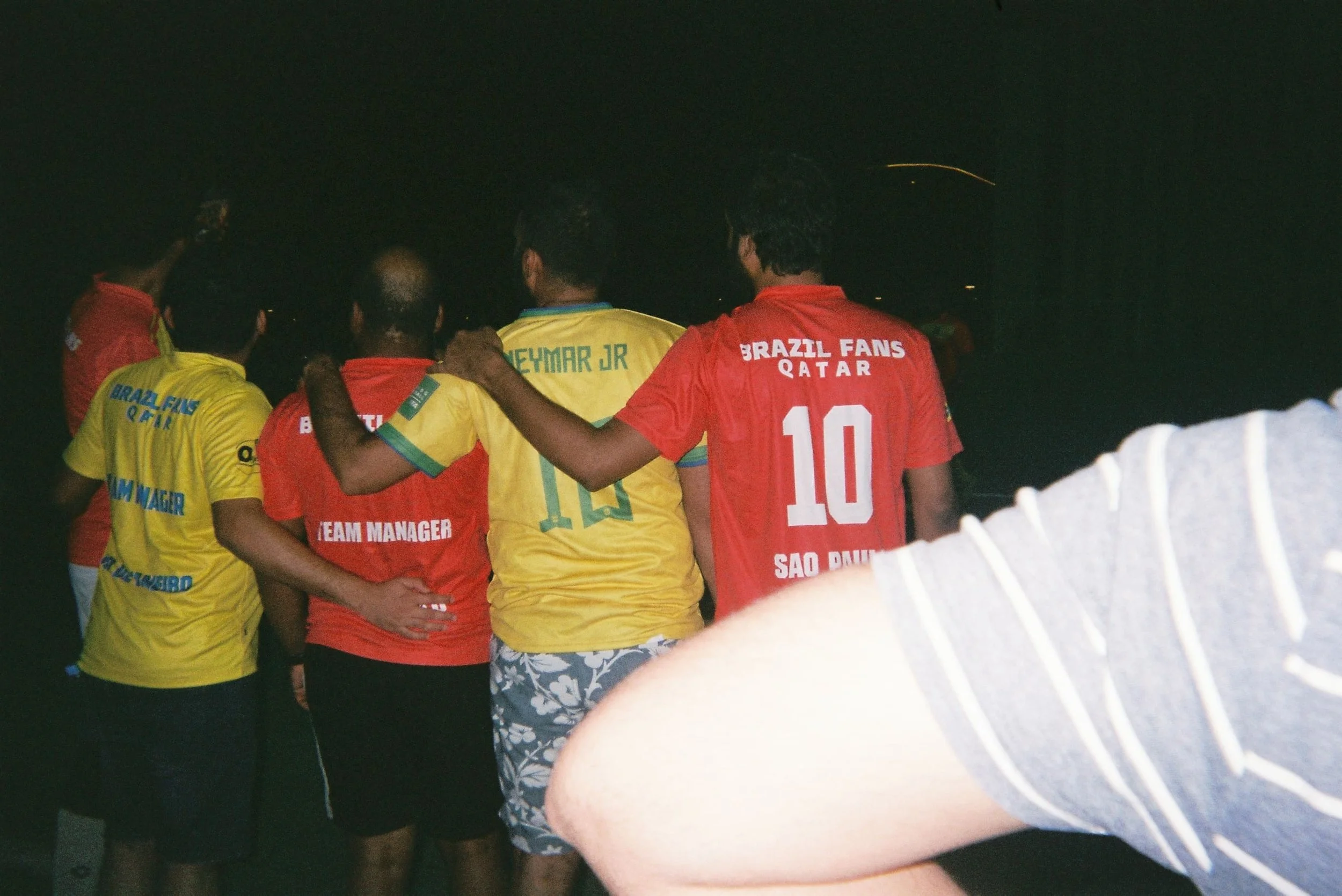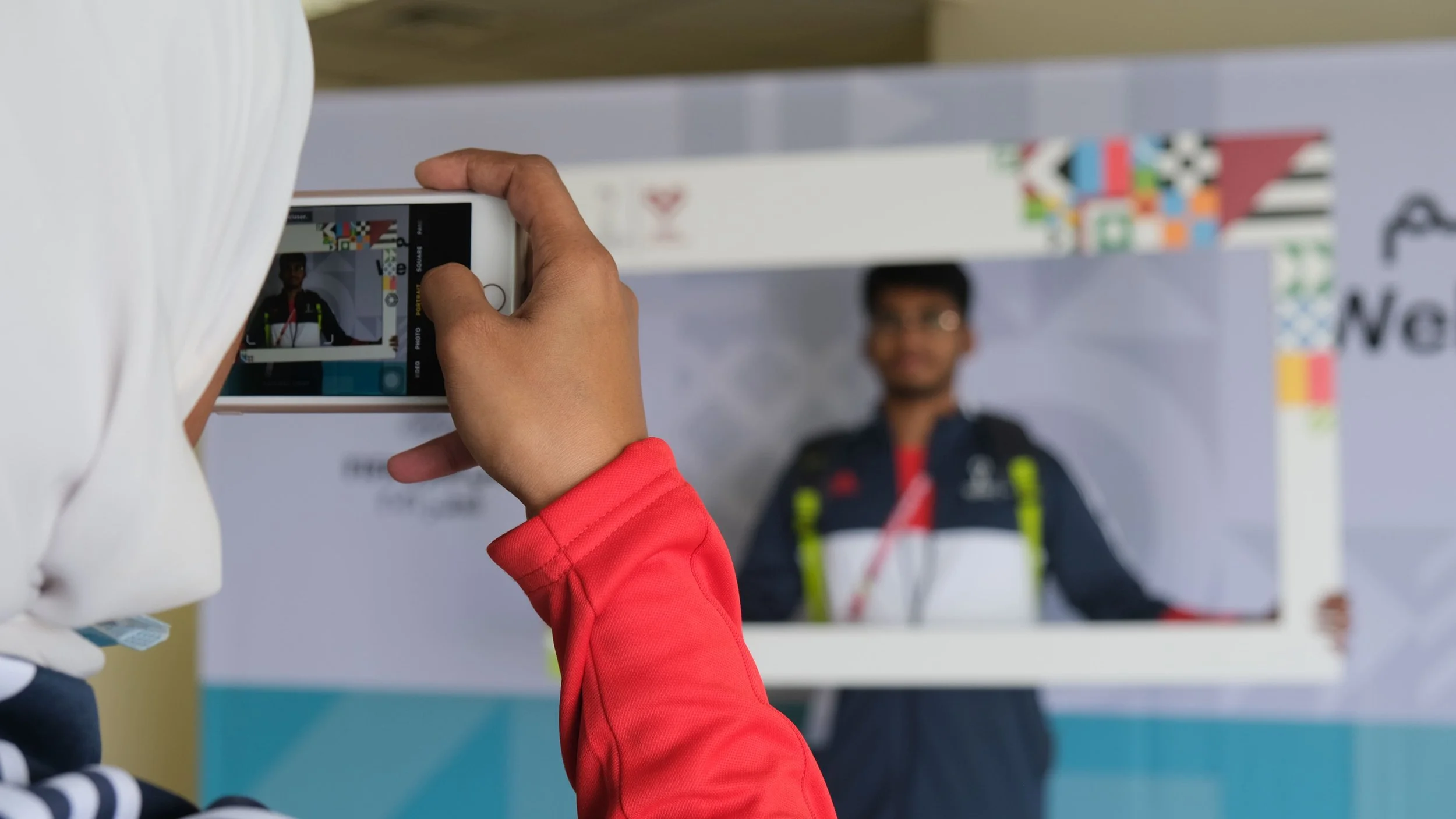Invisible to Invincible
Muhammad Muneeb Ur Rehman, Qatar
Muhammad Muneeb Ur Rehman is currently studying for a master’s in Sports and Entertainment Management from Hamad Bin Khalifa University and previously graduated from Northwestern University in Qatar with a bachelor's in Media Industries and Technologies. While working with Doha News and Losail Circuit Sports Club as a multimedia content editor, he decided to turn his passion for sports into a career. He has been part of the Ruwaad Pioneer Volunteers program on the Road to 2022 and has worked for every football tournament in the country since 2019.
As part of the GOALS program, Muneeb tells his story of discovering football in Pakistan, integrating into Qatari culture, and how football transformed his life.
My name is Muhammad Muneeb Ur Rehman, and I am a storyteller, researcher, amateur footballer, and multimedia content producer based in Qatar.
With the FIFA World Cup 2022™ coming to Qatar, this year is part of a cultural metamorphosis for football and the nation, and millions will experience this.
A symbol of this transformation is Al Thumama Stadium, where I was working ahead of its launch in October 2021 for the 49th Amir Cup Final. It redefines football, and it is one of the most iconic cultural symbols of the modern world. Designed by Qatari architect Ibrahim M Jaidah, the stadium displays traditional elements so crucial to the Gulf region.
It is so simple but beautiful; the stadium’s white cladding mimics the complex design of the gahfiya, a headpiece usually worn by young boys before they reach adulthood. Once young boys reach adulthood, ghutras (the traditional headdress) are added to the gahfiya. With its distinctive circular form, the stadium is named after the area it is located, taking its name from a locally found tree.
To me, the stadium reflects the coming-of-age story of Qatar with the World Cup, and this is my coming-of-age story…
In 2008, Pakistan faced economic difficulties and the never-ending dark tunnel of the war on terror. We lived in Mansehra, a small town near Abottabad, and my family decided it would be best for my prospects if I was sent to a boarding school in Lahore.
Everything was new. The socio-economic class difference alone shocked me and knocked my social confidence. Culturally, I had never experienced anything outside of books, school, and my mother’s lifehacks for learning and coping in her own world. My school was Aitchison College Lahore, and when I arrived, I felt invisible. So far from home, surrounded by nothing familiar.
I saw lush green fields and kids playing football for the first time. I had played cricket in the streets here and there, but before 2008 I knew nothing of the luxury of having a football under my feet or the comfort of a Champions League game playing as background noise while I worked.
Recalling my very first memory of playing football brings back the smell of freshly cut grass. It all started with break time; all the kids would bring out their footballs to play in front of the red brick Prep School building. I remember meeting my oldest football friend, Shayan, who asked me if I would like to play on his team. He had figured out that I could run!
I remember playing barefoot as I still had not seen my first boots. I am left-footed, and I remember running with the ball through the crowded field. The only thing I knew was the goal towards which I had to run – head down and cutting away as soon as someone tried to put the foot in.
I remember being tackled outside the box and Shayan curling in the free kick for a goal. My roar gave way to the amazement that never left me as I promised myself to learn how to take a free kick.
By early 2009, all my downtime was spent kicking the ball alone. While others read bedtime stories at the boarding house, I visualized Ronaldinho and Zidane dancing around the fields.
With a football under my feet, I felt like I had the whole world open to me. The days were draining, but nights were calm and satisfying, because I knew if I learned one new dribble every day and perfected the old ones, I could go to sleep feeling invincible forever.
With my changing perspective of the world, football became a way of life. It gave me friends that I still cherish 14 years later. It was not until 2014 that I realized how relatable my transformation was and how football could cross cultures.
I was fortunate to travel to India in 2014 to visit The Rajkumar College, Rajkot, for my first foreign trip. As a young Pakistani traveling to India, I have to admit that I did have reservations about the culture, society, and people.
The first dinner had somewhat of the same food we enjoyed back in Lahore. And the fact that we broke the ice at the dinner table while enjoying desi food with the famous “Messi or Ronaldo?” question still makes me smile. Barcelona fans were happier that night, but all football fans at the table were transformed in their mindset. We played football until after curfew at night for that whole week. A quiet metamorphosis was happening between neighbors.
I left India with a new perspective. That football is more universal than Spiderman, and it had the power to humanize and transform like nothing I have experienced!
In 2016 I began applying to universities in Pakistan, Canada, Germany, the US, and Qatar. It was an exciting but challenging time in that the beautiful friendships I had formed over eight years were drifting away.
I have wanted to be a storyteller for as long as I can remember. After surviving the 2005 Balakot earthquake, my family hosted a French journalist who wrote for a magazine.
I was watching her write stories and engaging with her shaped my perspective on media and its soft power.
So, when Northwestern University accepted me, I knew it was my path - a dream shaping into life. It seemed like the perfect place to be.
I had friends from Pakistan studying in Doha, and this meant that I did not face a tough culture shock. Making friends was much easier than before, and I simply had to join the football team. The cultural environment was very familiar and calming as I started interacting with people from all backgrounds being brought under Qatar's umbrella.
The language issue was a bit harder to navigate because any Arabic I learned was Fus'ha which is not usually spoken anywhere. The local dialect is still something I struggle with at times. Informal settings where Arabic was spoken were tougher to navigate in the beginning. However, I was transforming. I was not just picking up on the Qatari words; I was also getting the hang of the culture and the society I would grow to call home away from home for six years and counting.
I joined the football team at Northwestern University as soon as I came to Qatar. In the beginning, I was lucky to get some game time as a left-winger, and I got a starting position in the midfield soon after. With supportive teammates, training with the team was fun, and lessons learned on the field could easily be applied to life because of the team's practical approach.
In my senior year, we did not have the coach or the same team philosophy, but as the captain and manager, I still rallied the team and organized the group. We soon got a new coach and participated in the Education City Football League.
After completing my bachelor's in Media Industries and Technology with a Strategic Communications certificate, I decided to pursue a master's in Sports and Entertainment Management to ensure that my passion for storytelling is bridged with sports.
The transformation I witnessed and have been fortunate enough to be a part of during these six years has made me adore football. While playing, researching, and storytelling in Qatar, I have seen the country’s rarely talked about culture become globally iconic. What is more beautiful than lush green pitches adorned by alluring stadium structures erupted on the reddish desert sand? And the cherry on top? Qatar’s cultural and societal fragments are embedded into each of those structures. The awe of it all.
Compared to my Pakistani culture, Qataris also share a sense of hospitality. They have a passion and commitment to their traditions, and I believe this connects with South Asians.
The traditional Bedouin culture majorly influences Qatari culture and this sets it apart. While reading into the coffee culture and its etiquettes at a Qatari majlis, I was inspired by the smallest details it covered.
Geopolitically, Qatar has placed itself at the center of modern cultural transformation. Therefore, the country serves as a gateway between the east and the west - a status that will evolve further because of the FIFA World Cup 2022.
The way Qatar is making its mark during this process through its display of culture and traditions to the world is very inspiring. Just looking at the stadiums, for example, each structure represents the local culture of the area the stadium is located in. The simplicity with which Qatar has incorporated its culture into the heart of the mega FIFA event is to be applauded.
I have had my own road to 2022!
In 2017, I was selected to accompany a Service Learning Trip to Italy. The workshops were designed to support the cultural integration of refugees into Naples’ society.
We kicked around a worn-out football during the breaks and after hours. The ball represented this transformation, a metamorphosis of South Asian, African, Middle Eastern, and European cultures. This is the power of football.
After coming back from Italy, I renewed my commitment to the game. Qatar Foundation not only broadened my perspective of the world, but it also provided me with the means to engage with it at a deeper level, and I understood better why Qatar had to bid for the FIFA World Cup 2022.
I spent the summer of 2018 volunteering in Ghana. I volunteered in Ghana through a summer abroad program with Northwestern University called GESI (Global Engagement Studies Institute). I was volunteering as a Marketing and Programs Intern with Challenging Heights, a non-profit working to end child trafficking across Ghana.
While there is so much to share about the country and the amazing people that I still call my family, the joy of playing football barefoot on the sandy beaches of Accra and Cape Coast sums it up.
I stayed with a host family in Winneba. We watched the 2018 FIFA World Cup Russia™ together. While I struggled with getting used to eating Fufu and missed Biryani every time I had Jollof, football was one thing that put all my worries to rest.
I learned more about the Ghanaian culture during those 90-minute World Cup games than I learned during my classes on cultural integration.
Multiple leagues and tournaments are starting at the grassroots level in Qatar. Teams built around different local and resident communities have carried Qatar's footballing culture and legacy into the 21st century.
So, football has been there with me for much of my life and in Qatar, I know this will continue.
When I have faced obstacles and challenges, football has helped me. When language gave up, a pass connected people oceans apart. A makeshift football pitch showed me the way where mobile phones and maps failed. Every time a football was kicked around, mindsets shifted, people related to each other, kicking off a transformation.




